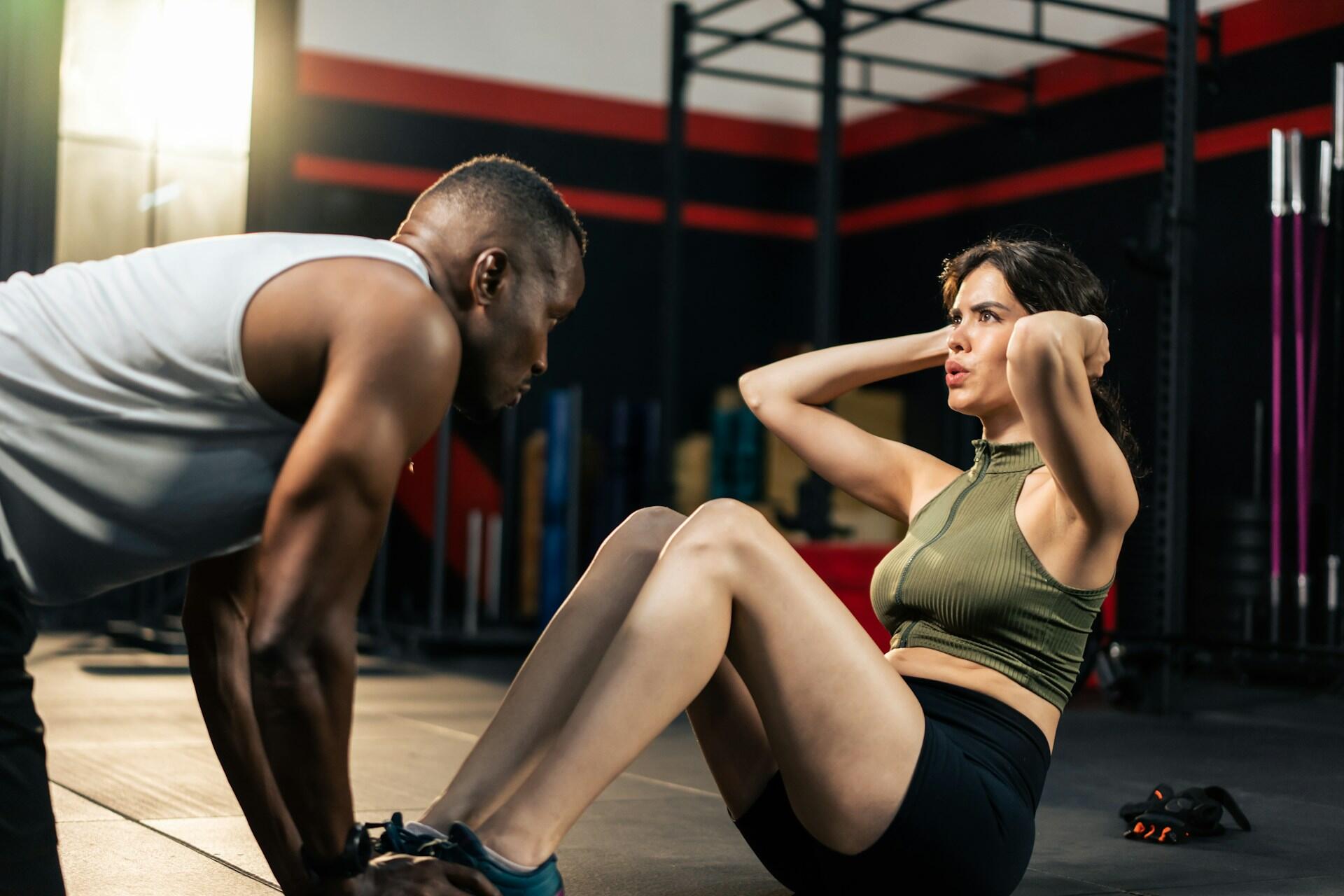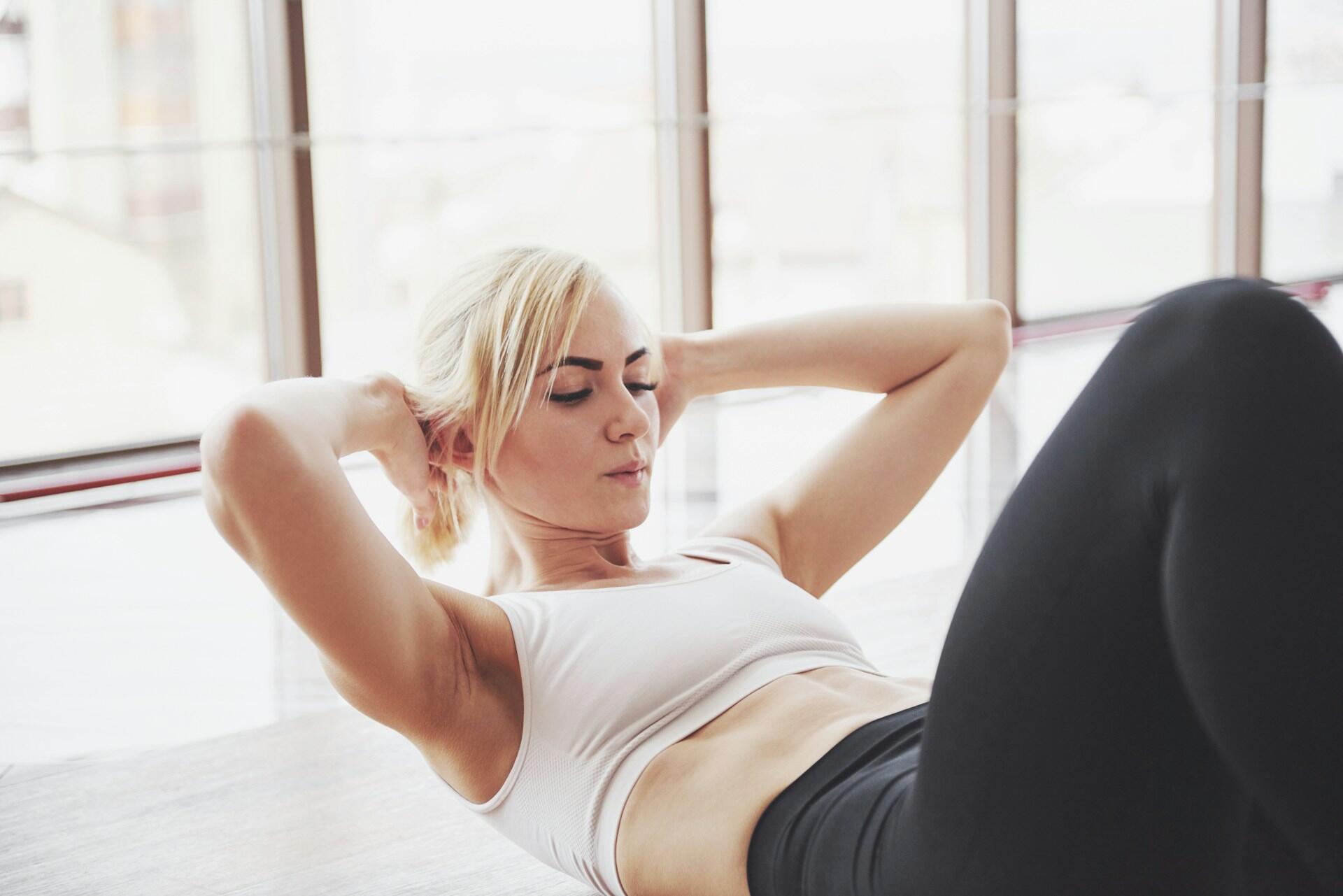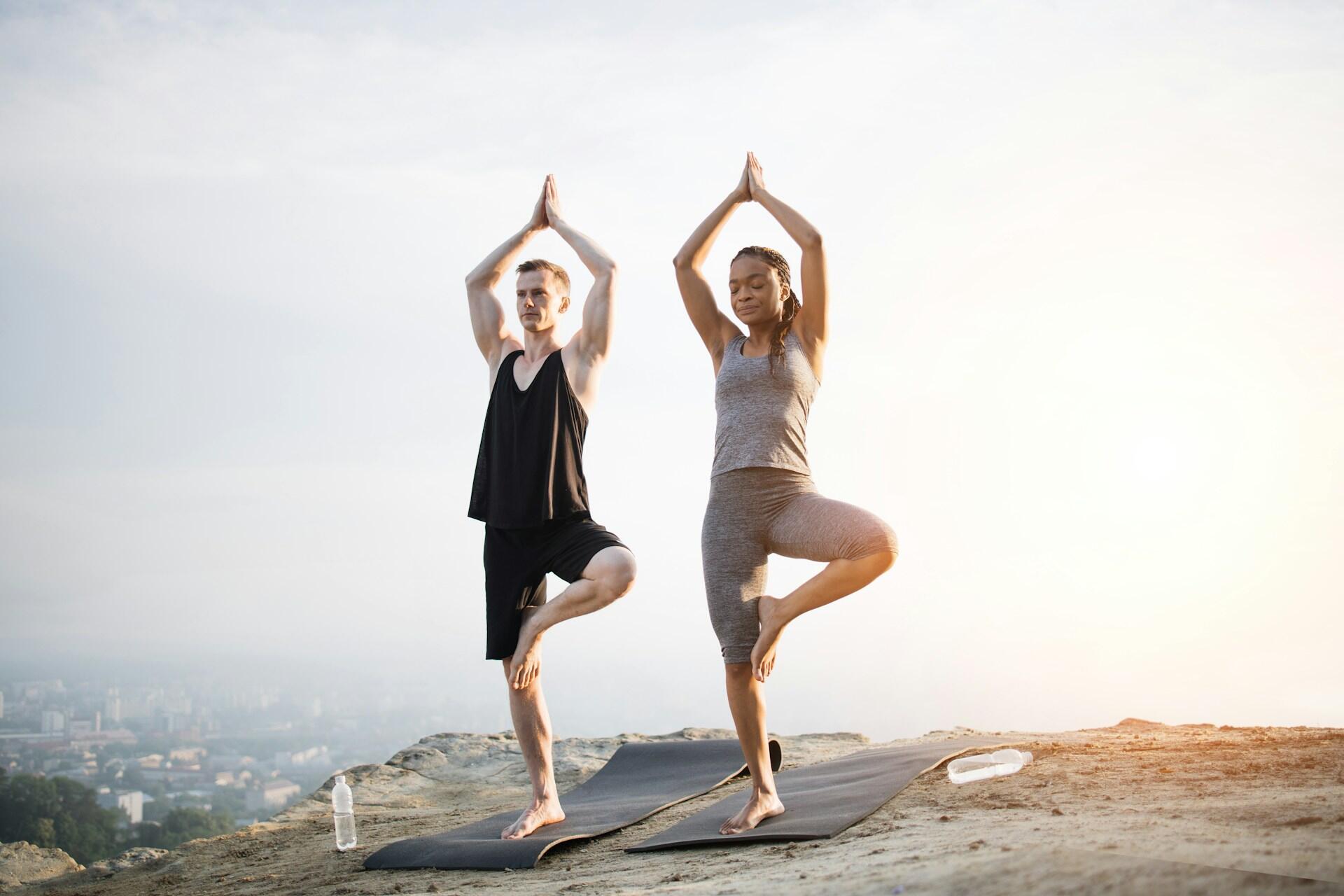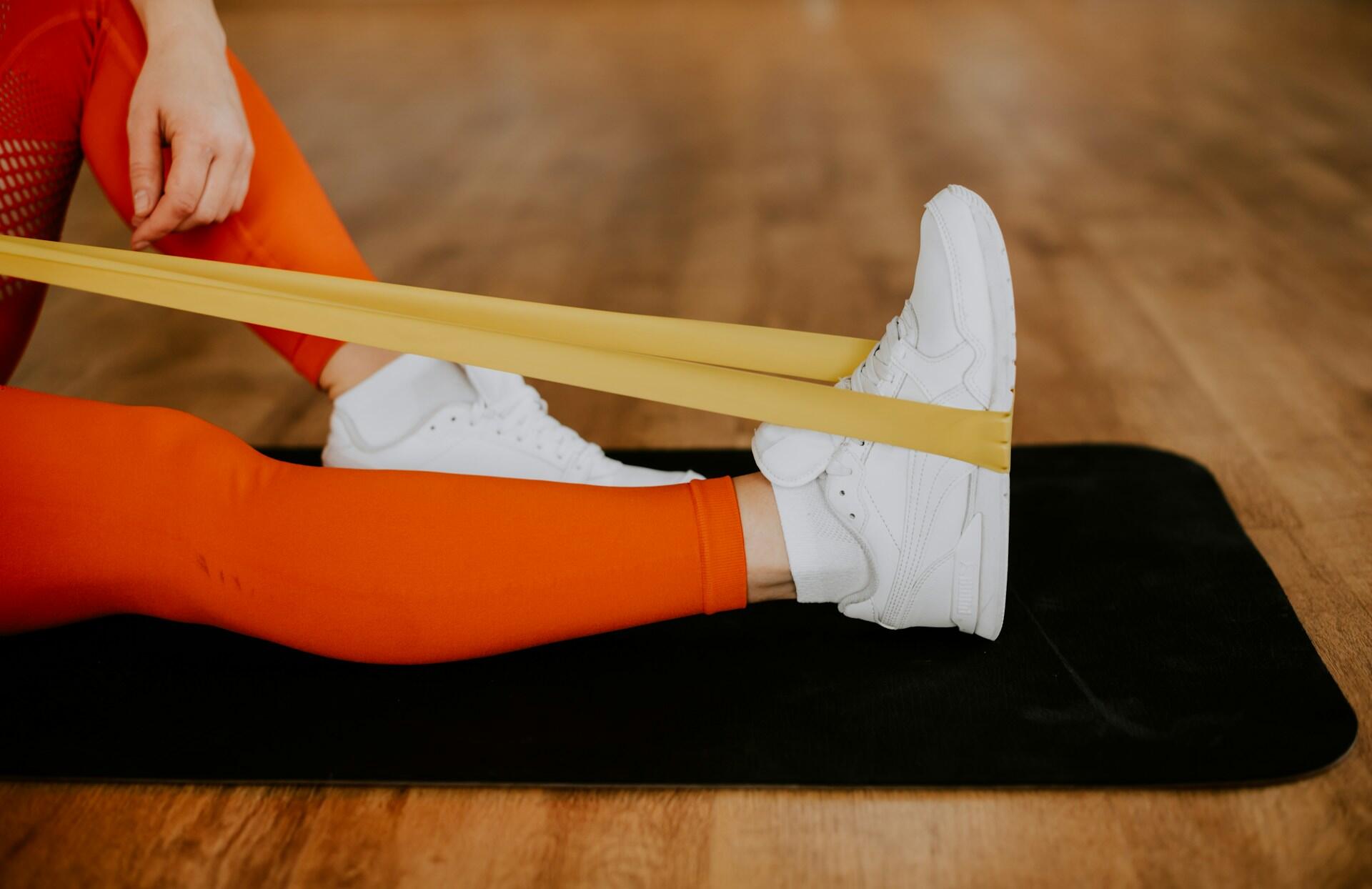Obviously, swimming ranks among the best exercises you can do to prepare for surfing, as they're both water sports. Swimming helps build endurance, cardiovascular strength, and overall muscle tone. What can you do on land to get your body ready for its first surf? Your surfer workout routine should include several types of exercise, from strength training to building flexibility.
What to Include in Your Surfer Workout
- Core strength building: sit-ups, leg lifts/hikes, planks, twists, and crunches
- Flexibility: yoga, tai chi, Pilates, resistance band stretches for specific body parts
- Build joint strength: squats, lunges, ellipticals, wall-sits
- Proper nutrition: ensure sufficient protein and electrolyte intake.

Surf Fitness Depends on Core Strength
Your back and abdominal muscles are crucial for surf fitness. Together, they make up your core, protecting your spinal column and joining your upper and lower halves. It also helps you keep your balance and control your board. These exercises will build your core strength.

Sit-ups and Leg Lifts
Sit-ups have gotten a lot of bad press lately, but they remain one of the best exercises to build abdominal and back strength. Always provided you do them correctly, of course.
- Lay on your back, knees at 90 degrees and feet on the floor.
- Tuck your chin to your chest; roll up one vertebra at a time. Do not snatch yourself up!
- Arms may be crossed over your chest or behind your head.
- Ease back down gradually, the way you came up.
Leg lifts work your lower abdominals; they are a bit more protective of your back. To do them, lay on your back, with your legs straight out and feet touching. Raise them 10 cm off the floor, then bring them up to a 90-degree angle before bringing them back down; repeat. Note: you may place your hands under your glutes for extra support.
If you have access to a fitness bar - one you can hang from, you can turn your leg lifts 90 degrees. Leg raises call for you to hang from the bar and lift both legs to a 90-degree position. They're much easier to do if you have a backstop to press up against but the effect is the same as the floor exercise.
Sit-ups, leg lifts, and leg raises require a basic level of fitness to prevent injury.
If you haven't exercised in a while or if you suffer from lower back pain, skip the sit-ups for now.
Planks
This exercise booted sit-ups out of the top spot for core strength-building exercises. If anything, planking is more physically demanding than sit-ups are. However, they're more effective at building core strength.
Reading instructions will only take you so far. This physical therapist describes how to do the perfect plank and presents variations for when simple planking becomes too easy for you.
Crunches and Twists
Crunches are a bit gentler on your abs, making them an ideal exercise if you haven't worked out out in a while. They're great for building upper abdominal strength. To do a perfect crunch, position yourself like you'd do a sit-up (knees at 90 degrees, flat on the floor).
Raise your head to tuck your chin in, and then raise your shoulders off the mat.
Your arms may be crossed over your chest, or you may tuck your hands behind your head with your elbows pointed out.
Release the crunch and repeat.

Raise your head to tuck your chin in, and then raise your shoulders off the mat.
Your arms may be crossed over your chest, or you may tuck your hands behind your head with your elbows pointed out.
Release the crunch and repeat.
Twists engage your oblique muscles, the ones that run up and down your sides. Those need strengthening so you can control your surfboard's direction, especially to turn on the waves.
Sitting on the floor with your knees at 90 degrees and feet planted shoulder-width apart, twist as far left as possible. Hold for a moment, and then turn your torso right as far as possible. You should hold your arms out in front of you with a dumbbell weight in each hand or, better yet, a medicine ball.
Building your core is about more than looking good in your wetsuit or whatever surfer gear you might wear; it's about not injuring yourself. Add these exercises to your surfer workout routine to ensure your core is strong enough to let you ride the waves.

Flexibility Exercises for Surfing
Surf training at home should include flexibility exercises. Your body must respond to your board's sudden movements, such as leaning back or forward, and using your knees to absorb shocks.
Hands down, yoga is the best surfing workout for flexibility. That raises the question: what type of yoga and which poses are best? Top guides for surfing for beginners recommend at least these four poses.
You don't have to engage in a whole yoga routine but it can be beneficial, and not just for surf training. If you want more dynamic flexibility exercises, consider Pilates. It's a vigourous workout that incorporates yoga elements while raising your heart rate.

Resistance bands are best for working your shoulders, back, glutes, quads and your core muscles, as well as building joint strength. Adding resistance bands to standard exercises that work those muscle groups intensifies the workout. For maximum effect, hold the position in question for a few seconds longer than you normally would.
Once you learn how to read surf forecasts, you can plan your surfing sessions around calmer weather. But things don't always stay calm once you're on the water, so it's best to be flexible and strong enough to absorb those changes in condition.
They're great for building balance and stability, two qualities you need when riding the waves.
A Surfing Workout to Build Joint Strength
Surfing is a physically demanding sport, not the least because of paddling - getting yourself and your board to the lineup. Paddling works your arm, shoulder, back, and core muscles. It is, by far, the most strenuous part of surfing. What can you add to your surfer workout routine to get ready for that?
If you have access to a rowing machine, a generous session on it would work.
If you can, aim for five sets of 500-metre, high-intensity rows with rest intervals between the sets.
Be sure to maintain proper form to maximise this workout's benefits!

Push-ups
After paddling, popping - going from lying on your belly to standing on your board is the most demanding surfer move. To build the needed arm and shoulder strength, push-ups work a treat! In fact, they mimic the popping motion.
To do the perfect push-up, keep your body line straight and place your hands under your shoulders. Flexing your core, use your arms to push yourself up until your arms are straight. Sink back down and repeat.
Squats
This is another standard move surfers execute on their boards. Squats build the leg strength you need to stay balanced on your board. You've probably done squats all your life, but have you been doing them right? This fitness coach shows you the proper form.
Pull-ups
It seems we're revisiting all those gym exercises our high school coaches loved to put us through! But then, maybe Coach was right, after all. To really work your shoulders and lateral muscles (lats), pull-ups are essential. No worries if you don't have a bar to pull yourself up on; resistance bands work almost as well.
Deadlifts
This exercise does wonders for your lower back and your lower body overall. This strength is crucial for maintaining stability atop your board, for controlling its direction, and for executing turns. For deadlifts, you'll need either a barbell or kettlebells.

Stand with your feet hip-width apart and squat until your hands reach the weight, keeping your back straight throughout, as in the photo.
Power the lift through your legs, keeping your core strong and stable. Three to five reps of 10 lifts should get your back in shape in no time!
Beginners often ask how long does it take to build surf fitness (and to learn how to surf). Those answers depend on you. Specifically, your level of fitness as you start out and the time and effort you commit to your surfer workout routine.
How to Get Better at Surfing by Getting Fit
We've just lobbed a whole bunch of somewhat organised information at you. You might appreciate in-depth commentary on how to get better at surfing through physical fitness. Others might prefer a quick summary of exercises to do and what they're good for. In that spirit, we offer this sample weekly workout plan (remember to always warm up pre-workout and cool down afterwards!).
| 📆Day | 🏋️♀️Exercise | 💪What it does | 🔢What to include |
|---|---|---|---|
| Monday | |||
| Warmups: gentle stretching, breathing exercises, raise heart rate | Gets your body ready for more strenuous exercises. | March in place, raise/lower arms, head rotations to loosen neck. | |
| Isometric exercises | Builds balance, stability, and muscle/joint strength. | Planks, pushups, pull-ups. | |
| yoga | Helps cool down, relax, and build flexibiblity | Warrior pose II, cobra pose, downward dog, child's pose. | |
| Tuesday | Warmups to start. Yoga to finish. | ||
| Strength training (with resistance bands) | Builds muscle and joint strength; improves balance and control. | Upper body work: shoulders, back muscles, upper abs. Lower body work: hips, quads and hams, knees, calves. | |
| Deadlifts | Tones and strengthens the lower back and lower body. | Kettlebells or barbells | |
| Wednesday | Warmups to start. Yoga to finish. | ||
| Cardio work | Builds endurance, improves oxygen usage. | Walking, jogging/running, cycling, Pilates, dancing, swimming. | |
| Floor work | Mirrors popping movements, strengthens core. | Push-ups, leg lifts, crunches, V-sits | |
| Thursday | Warmups to start. Yoga to finish. | ||
| Rowing | Conditions shoulders, back and arm muscles. | High-intensity reps with low-intensity rest intervals. Use resistance bands if no rower. | |
| Squats | Builds hip and knee strength, tones/builds glutes and leg muscles; strengthens core. | Add dumbbells to work shoulder and arm muscles. | |
| Friday | Warmups to start. Yoga to finish. | ||
| Swimming | Mimics paddling; builds cardio strength, tones muscles. | If no pool, practise paddling by lying face-down on a bench. Holding a dumbbell in each hand increases tension. | |
| Saturday | Warmups to start. Yoga to finish. | ||
| Core workout | Builds, tones and conditions upper and lower abs and back muscles. | Twists, planks, crunches, sit-ups, leg lifts/hikes. | |
| Strength training | Works, tones, and conditions specific muscle groups. Improves balance and control. | Upper body work: shoulders, back muscles, upper abs. Lower body work: hips, quads and hams, knees, calves. | |
| Sunday | Warmups to start. Yoga to finish. | ||
| Cardio work | Builds endurance, improves oxygen usage. | Walking, jogging/running, cycling, Pilates, dancing, swimming. |
Once you've mastered exercises for surfing and start doing more difficult versions of them, you're almost ready to catch your first wave! But first, you have to make sure you have the right board(s) for your area's surfing conditions. It'd be a shame to do all this work only to lack a board!
Summarise with AI:















